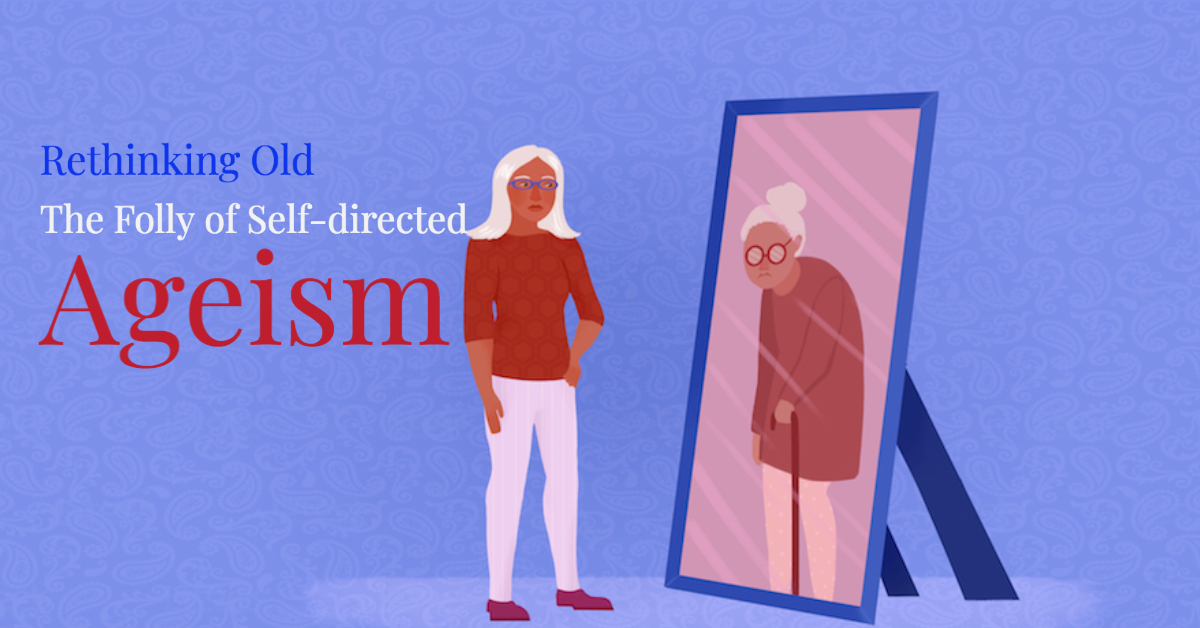By Debra Yearwood
Imagine applying for a job, but never sending your resume. Ordering your favourite meal but never eating the food. In many respects, this is what self-directed ageism does. It bleeds away the essence of life’s activities. The desire to do and experience things is there, even the capacity, but self-directed ageism acts as a barrier to behaviour, not allowing you to fully engage.
Unfortunately, self-directed ageism doesn’t always feel like a restraint. Sometimes it can feel right, even comfortable. You hesitate to buy clothes you like because they look “too young”. That’s the mature thing to do, right? You stop doing the sports you enjoy because your “body is not up to it”. A responsible decision surely? The truth may be that your lack of energy is a result of not exercising because you’ve told yourself you’re not up to the workout. If you seek out weaknesses and nurture a sense of lost capacity, then you will become our own worst enemy.
While growing old comes with physical limitations, the process is slow and there are many things you can do to offset negative effects. They range from exercise and food to medicine and technology. Today, older adults have never been more healthy or better educated, so why apply the constraints of the past generations to people who bear little resemblance to their predecessors?
Self-directed ageism is a self-fulfilling prophecy. If you tell yourself often enough that you are not equal to the task, sooner or later you will be correct. The process is incremental, starting as early as childhood. Young children can be concerned about ageing as early as the fourth grade (some studies indicate as early as four years old). When we hit our teens we are convinced that ageing is a double-edged sword. We want to be old enough to unlock rights and freedoms, but we don’t want to be “too old” to enjoy them. In our thirties, we are looking for signs of lowered perception, lack of strength and agility and a host of other failings. By the time we are in our forties, we seek and find the evidence of our failing state. It often starts with little things like forgetting something and attributing the cause to age; or, hurting ourselves and determining that age rather than lack of attention is the cause. In our fifties, we become wedded to viewing ourselves through a limiting lens; and in our sixties and beyond we continue to have diminishing expectations. Little wonder we are living through an epidemic of loneliness. We have convinced ourselves that ‘older’ equals bad. When more than a quarter of the population is older, it will obviously have far-reaching effects.
We are as old as our attitude.
The comments of others play a role as well. Birthday cards that ridicule our increased number of years or mock our ability to keep up. Ads, television shows and movies all do their part as well. We are bombarded with images and messages about the negative consequences of ageing. Worse still, older people are simply absent from what we see as if they don’t exist or don’t matter. Sooner or later we internalize those negative messages and begin the process of self-constraint.
You can see the signs of these constraints in the way we spend our time. When you reflect on your personal preferences, how many of your decisions are based on what you really like versus what you think you should like? One of the reasons T60 emphasizes the importance of knowing yourself well and your personal values is because it’s one of the easiest ways to determine if you are living in alignment with yourself. If you have a love of the great outdoors but spend most of your free time inside, you are not living in alignment with your values. This can create stress and unhappiness.
Fortunately, one of the great things about growing older is our ability to swiftly understand how things work. Our life experience gives us the ability to get the gist of things quickly. Use that ability and do some self-diagnosis. Take a quick inventory of your habits and pastimes. Are you living your best life or are you living less because you think it’s all you can do?
Related Articles:

